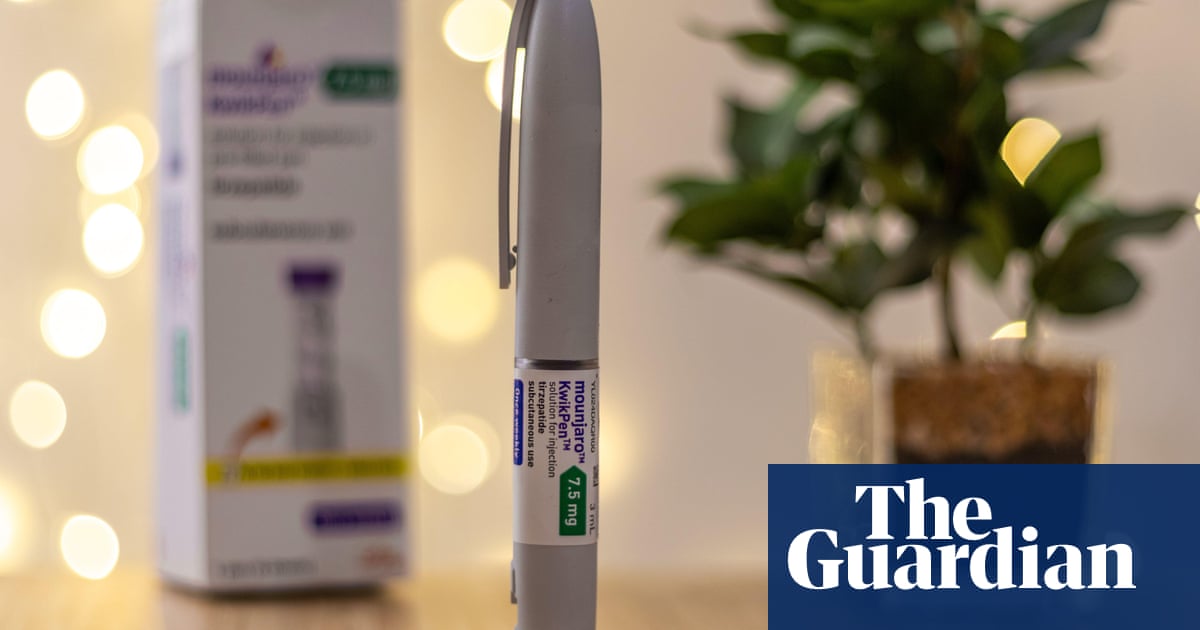I was about 16 when I had my first bout of depression, but 29 when I sought help and received a diagnosis. In the intervening period, I thought I could weather my low moods alone, but the waves of hopelessness didn’t lessen; they only gained momentum. I was left with a strong desire to evaporate, leaving no trace of my existence in the world.
I am extremely lucky to have responded well to a course of cognitive behavioural therapy (CBT), but I can’t help wondering how much pain I could have avoided if I’d learned to manage my mental health better at a younger age, before my symptoms had even started to develop.
This is the thinking behind new efforts to build people’s mental resilience. The philosophy is simple and has been applied to physical health for decades: prevention is better than cure.
“The opportunity to intervene when problems are first emerging could circumvent so many challenges down the line, and help people pivot towards a more adaptive direction,” says Jessica Schleider, an associate professor at Northwestern University in Illinois.
The benefits of early intervention apply across age groups, but they may be especially important for adolescents, a fact that the World Health Organization recently emphasised in its guidance to improve access to mental healthcare for young people. “With one-third of mental health conditions emerging before the age of 14 and half before the age of 18, early action is essential to enable children and young people to thrive and realise their full potential,” it said. The challenge, however, is finding the appropriate means to deliver the support – and that may be easier said than done.
The promise, and potential pitfalls, of resilience intervention may be found in the study of mindfulness training. This involves the non-judgmental awareness of mental and bodily states, without getting caught up in thoughts or feelings, which can help to break ruminative cycles of thinking. Drawing on these principles, psychologists designed an eight-week course called mindfulness-based cognitive therapy (MBCT), which has been shown to relieve the symptoms of people with depression and reduce the risk of a subsequent relapse.
A few years ago, Dr Julieta Galante – then based at the University of Cambridge – and colleagues examined whether a modified version of the programme could increase the resilience of students facing exam stress. The experiment took the form of a randomised controlled trial – the gold standard of medical research – involving more than 600 participants. Half were assigned to the mindfulness course in the first or second term of the academic year, while the rest were placed on a waiting list, with the guarantee of a place on the course once the study was over. Galante and her colleagues then tracked their mental distress over the exam period in May and June.

As the team had hoped, the mindfulness programme helped the participants to cope with this difficult period. “Their distress stayed at around the same level that it had been before the beginning of their revision,” says Galante, who is now deputy director of the Contemplative Studies Centre at Melbourne School of Psychological Sciences in Australia. “But the distress levels of the students who hadn’t done the mindfulness course were going up and up.” On average, the team estimated that it prevented five people from reaching a clinical level of distress for every 30 participants who enrolled in the course.
Given such benefits, it might seem sensible to roll out mindfulness courses in all educational institutions – yet a more recent study should curb our enthusiasm. The My Resilience in Adolescence (Myriad) trial involved 85 schools with nearly 8,400 pupils aged 10 to 14. Forty two of the schools were asked to roll out a mindfulness training programme over 10 lessons, while the rest continued providing their typical support within standard personal, social, health and economic education (PSHE) lessons. At the end of the year, they tested the students’ depression and general wellbeing – and found no differences between the two groups.
Galante suggests the core difference lies in the ways the participants were recruited. In her study, the students volunteered for the research, and may, therefore, been more willing to engage with the course content. The participants of the Myriad study, in contrast, were being force-fed the material in their lessons – and might have paid little attention. Along these lines, the researchers behind the Myriad study found that fewer than 20% of the participants completed the mindfulness practice at home. “[The Myriad study’s] methods were impeccable, so I trust what they found,” says Galante. “But making interventions compulsory may not for work something like mindfulness.”
A better option may be to offer a range of resources that allows people to select the options that best suit their needs and interests. “No one size fits all,” says Galante. There are now many options available, including education on coping strategies and evidence-based techniques to improve emotional regulation; physical exercise regimes (which have been shown to improve mental health); and music or art programmes that encourage creative expression.
Although success rates vary, a recent meta-analysis concluded that resilience interventions can boost people’s wellbeing, and they are particularly effective at improving the trajectory of people who are already at a “moderate to high” risk of developing a mental illness. “Resilience interventions do work for lots of people,” says Jenny JW Liu, an adjunct research professor at Western University in London, Ontario, who was the first author of the paper.
Many of the strategies teach the same skills that can be learned during therapies such as CBT. “The dichotomy between prevention and treatment is fuzzy,” says Schleider. “Content wise, there often isn’t a difference.”
Self-compassion training, for instance, is focused on reducing the self-critical thinking that often dominates many people’s inner dialogue. Instead, they are encouraged to treat themselves with kindness, while recognising the “common humanity” in their pain and suffering. This stops people from feeling so lonely and isolated when going through a difficult period.

We can measure this construct by asking people to rate statements such as: “I try to see my failings as part of the human condition”, or ‘‘I try to be understanding and patient towards those aspects of my personality I don’t like”. Adolescents and young adults who endorse these views are less likely to develop anxiety or depression. Crucially, this kinder way of thinking about ourselves can be learned, and this seems to increase resilience to mental illness.
A related strategy involves teaching people about the brain’s malleability – our capacity to change our mental habits. This reduces people’s sense of helplessness and aids them in recognising their capacity to overcome the difficulties they might be facing, without despairing that they will always feel this way.
after newsletter promotion
The effects can be impressive. David Yeager of the University of Texas at Austin, and Adriana Sum Miu of Emory University in Atlanta, Georgia, asked students entering high school to take a short lesson on our capacity for change, including some basic information about the science behind our neuroplasticity – alongside personal anecdotes of other students who had overcome difficulties. Nine months later, they were about 40% less likely to have developed depression, compared with those who instead learned about the opportunity to grow their athletic ability.
Finally, an intervention can attempt to change people’s behaviour. Mental distress often prevents us from engaging in the things that matter to us, which further depresses our mood. A strategy called behavioural activation attempts to break this vicious circle. To do this, you might first monitor the ways different events trigger changes in your mood across a week. You then try to schedule more of the activities to contribute to feelings of satisfaction and growth, whether that is nurturing meaningful relationships, exercising your body, playing music or learning a new skill. The intervention’s resources may also give advice on the psychology of motivation and habit formation.
“It follows the idea that what you do shapes how you feel,” says Schleider. “So engaging in meaningful and valuable activities that are pleasurable, or help you reach a goal, can have an upward spiral effect on your thoughts.”
Education about these skills could be delivered in person, but Schleider has recently established an online resource – Project Yes (Youth Empowerment and Support) – that helps people to learn the tools to manage their mental health remotely. The available modules include Project Care, which teaches self-compassion; Project Personality, which examines the malleability of our minds; and Project ABC (Action Brings Change), which teaches behavioural activation.
Each module only takes about 20-30 minutes to complete, but Schleider’s research suggests that these “single-session interventions” can have a noticeable effect on people’s mental health in the short and medium term. She recruited 2,452 youths at the height of the Covid pandemic – a time of considerable uncertainty, stress and loneliness. The adolescents who took part in Project Yes reported lower levels of depressive symptoms and disordered eating at a three-month follow-up.
The improvements are often linked to changes in the participants’ perceptions of hope and personal control. “We’re supporting more adaptive ways of understanding stress, such as seeing it as malleable and modifiable rather than inevitably damaging, and we’re also giving them really concrete behaviours to try out,” says Schleider.
The sheer potential of these interventions is impressive. The aim is to complement other forms of support, providing an important first step for vulnerable people to build their mental health that is easily available when the person needs it. “I want them to be as ubiquitous as fluoride in the water,” says Schleider.
Despite this enthusiasm, she emphasises the need to consider the many other factors that may influence someone’s resilience, including their family circumstances and the broader systemic issues that are known to influence mental health, such as inequality and prejudice.
Liu agrees that we should consider the broader context. “Resilience is not always an individual endeavour,” she says. “It’s also linked to the resources that we have available at our disposal, our environment and the geopolitical climate.”
Resolving those problems will be an even meatier task than the undeniably taxing challenge of addressing people’s personal coping mechanisms. On the latter front, however, the recent scientific advances do offer some movements in the right direction. “The best we can do is equip people with the best possible tools that we know can potentially help to create a more positive overall trajectory,” says Schleider.
-
In the UK, the charity Mind is available on 0300 123 3393 and Childline on 0800 1111. In the US, call or text Mental Health America at 988 or chat 988lifeline.org. In Australia, support is available at Beyond Blue on 1300 22 4636, Lifeline on 13 11 14, and at MensLine on 1300 789 978
-
David Robson is the author of The Laws of Connection: 13 Social Strategies That Will Transform Your Life, published by Canongate (£18.99). To support the Guardian and Observer order your copy at guardianbookshop.com. Delivery charges may apply

.png) 1 month ago
23
1 month ago
23













































